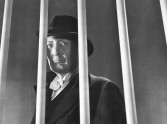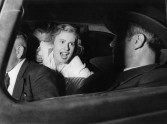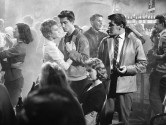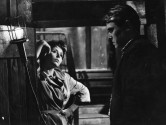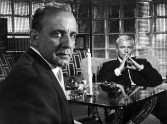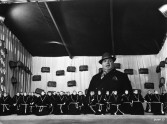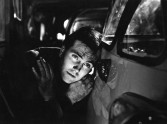
Asylrecht
The Day the Rains Came
Asylrecht is a curious production: medium-length, an unclassifiable cross between documentary and fiction, made on order of the British Film Section, premiered at the Venice Film Festival, shown for the first time in West Germany on the occasion of a refugee congress, and never regularly released except by way of non-commercial distribution for decades in various versions. Call it a crypto classic, like several other works of Rudolf Werner Kipp, a master of educational filmmaking who, in his finest achievements, did honor to his professed main inspiration: John Grierson. Kipp filmed with real refugees in actual camps. While in many cases scenes were arranged with their participation, some of the most dramatic moments were shot using a hidden camera. The refugees whose plights we learn about here mainly try to leave the Soviet-occupied areas for the Trizone, but not everybody could enter. Curious considering that West Germany would need every person able to work (in fact, later shorts about refugees stress exactly this as the main argument for being less hostile towards the strangers). In the film’s most haunting shots, groups of refugees walk like spectres through misty woods and meadows—lost to the world, fallen through a crack in space and time.
I now want to drive a snazzy car. I now want to travel the world. I want to get something out of life now, and not when I’m going feeble. This is Werner speaking, Werner Maurer, boss of the Black Panthers, a Berlin (West) gang terrorizing the Frontstadt with a series of brutal burglaries and heists. The Panthers are wild ones, bikers on life’s eternal fast track to doom and oblivion—gutter existentialists who commit crimes instead of writing essays and theatre pieces. But none of them is so full of rage as Werner, who’s afraid of ending up like his father: an alcoholic, erstwhile doctor kicked out of his order. None of daddy’s values for Werner: Security, order, my ass! Do I know whether tomorrow I’ll be called up to serve, whether the day after one of those atom-things drops on my head? If anybody understood this country in all its sad and angry, paranoia-stricken, crazy, impoverished-for-all-its-new-riches beauty and sorrow, it’s re-migrant Gerd Oswald, who brought the neurotic Hollywood pulp tough of A Kiss Before Dying (1956) and Screaming Mimi (1958), as well as the depressive melancholia of Fury at Showdown and Valerie (both 1957), to a project that on paper must have looked like a slightly edgier than usual crime-doesn’t-pay tale. Welcome to West Germany.



